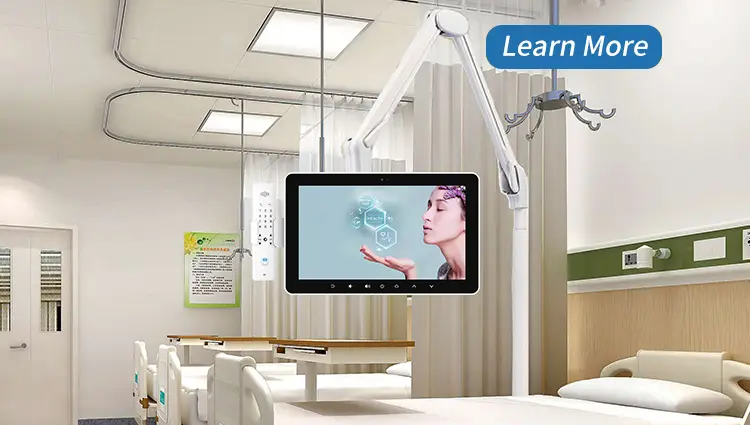In the modern healthcare landscape, efficiency and mobility are critical for delivering top-notch patient care. Workstations on Wheels (WoWs) are becoming indispensable tools in hospitals and clinics, streamlining workflows, enhancing accuracy in patient records, and improving overall care delivery. This article delves into the latest advancements in WoWs, highlighting their benefits, features, and integration into healthcare environments.
Why Workstations on Wheels Are Essential in Healthcare
Enhancing Mobility and Flexibility
Workstations on Wheels provide unprecedented mobility, allowing healthcare professionals to bring critical tools and patient records directly to the point of care. This mobility ensures that nurses, doctors, and other medical staff can deliver faster and more efficient care without being tied to a fixed location.
Improving Patient Care and Safety
WoWs contribute to enhanced patient care by providing instant access to electronic medical records (EMRs), reducing the likelihood of errors associated with manual data entry. The integration of real-time data and direct patient interaction ensures more accurate diagnosis and treatment plans, enhancing overall patient safety.
Streamlining Workflow and Reducing Downtime
By integrating computing power with ergonomic design, WoWs minimize downtime and streamline clinical workflows. This efficiency allows healthcare providers to focus more on patient care rather than navigating between different stations or dealing with cumbersome paper records.
Key Features of Modern Workstations on Wheels
Ergonomic Design for Comfort and Efficiency
Modern WoWs are designed with ergonomics in mind, featuring adjustable heights, flexible monitor mounts, and user-friendly interfaces. These design elements reduce physical strain on healthcare professionals, enabling them to work comfortably for extended periods.
Advanced Battery Technology
State-of-the-art WoWs are equipped with long-lasting, quick-charging batteries, ensuring that the workstation remains operational throughout long shifts. This technology reduces the need for frequent recharging, thereby increasing the availability and reliability of the workstation.
Secure Storage and Access
Security is paramount in healthcare. Modern WoWs include secure storage compartments for medications and sensitive patient information, accessible only to authorized personnel. This feature ensures compliance with data protection regulations and enhances patient privacy.
Integration with Healthcare Systems
WoWs seamlessly integrate with existing healthcare IT systems, including EMRs and hospital information systems (HIS). This integration allows for real-time updates, reducing the chances of discrepancies between different systems and ensuring that all patient data is up-to-date.
Robust Construction for Durability
Constructed from high-quality materials, modern WoWs are built to withstand the rigors of a busy healthcare environment. Their robust design includes features like spill-resistant keyboards, antimicrobial surfaces, and shock-resistant casings, ensuring longevity and reliability.
Innovative Applications of Workstations on Wheels
Telemedicine Integration
With the rise of telemedicine, WoWs are now being equipped with high-definition cameras, speakers, and microphones, enabling remote consultations directly from the patient’s bedside. This integration facilitates specialist consultations and follow-up appointments without the need for patient travel.
Medication Management
Advanced WoWs can be integrated with automated dispensing systems, allowing for accurate medication administration and tracking. This feature reduces the risk of medication errors and ensures that patients receive the correct dosage at the right time.
Real-Time Diagnostics and Monitoring
Equipped with medical-grade peripherals, WoWs can perform real-time diagnostics and patient monitoring. Devices such as ECG monitors, pulse oximeters, and blood pressure cuffs can be integrated into the workstation, providing immediate health metrics and aiding in rapid decision-making.
Future Trends in Workstations on Wheels
Artificial Intelligence and Predictive Analytics
The integration of AI and predictive analytics into WoWs is set to revolutionize patient care. AI algorithms can analyze patient data to predict potential health issues and recommend preventative measures, enhancing the ability of healthcare providers to deliver proactive care.
Enhanced Connectivity and Interoperability
Future WoWs will feature enhanced connectivity options, including 5G technology, to support faster data transmission and improved interoperability between different healthcare systems. This connectivity will facilitate more efficient sharing of patient data and collaboration among healthcare teams.
Personalized Workstation Configurations
Customization will be a key trend, with WoWs being tailored to meet the specific needs of different medical departments. For example, a WoW used in a surgical setting might include specialized tools and software, while one in a pediatric ward might be equipped with child-friendly features and applications.
Sustainable and Eco-Friendly Designs
As environmental concerns grow, future WoWs will incorporate sustainable materials and energy-efficient technologies. These eco-friendly designs will not only reduce the environmental footprint of healthcare facilities but also lower operational costs through energy savings.
Conclusion: Transforming Healthcare with Advanced WoWs
Workstations on Wheels represent a critical innovation in healthcare, enhancing mobility, improving patient care, and streamlining workflows. With advancements in technology and design, WoWs are poised to become even more integral to modern healthcare practices. By embracing these solutions, healthcare providers can ensure better patient outcomes, increased efficiency, and a higher standard of care.
Diagram: Workflow Integration of a Workstation on Wheels
mermaid graph TD
A[Patient Admission] -->|Patient Record| B[Workstation on Wheels]
B -->|EMR Access| C[Patient Consultation]
C -->|Real-Time Data| D[Treatment Plan]
D -->|Record Update| E[EMR System]
E -->|Medication Order| F[Pharmacy]
F -->|Medication Dispense| G[Workstation on Wheels]
G -->|Medication Administration| H[Patient]
H -->|Monitor and Record| I[Workstation on Wheels]
I -->|Update| J[EMR System]
J -->|Data Analysis| K[Healthcare Providers]
This workflow diagram illustrates the integration of a Workstation on Wheels into the patient care process, from admission through treatment and monitoring, highlighting the seamless flow of information and care facilitated by WoWs.

